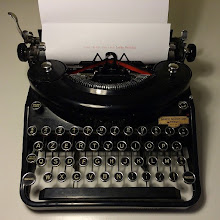I'm sure that everybody likely to read this blog will at least have absorbed the idea of referencing as a must-have in academic writing. If you're anything like me, you'll also be truly amazed at the amount of time required to thoroughly reference an essay. This time, for instance, and despite my preparatory stack of index cards, I spent a startling three hours doing it. Of course, I grumble like mad, but I am firmly convinced that referencing is absolutely vital. It's much more than a device cooked up to torment academic writers when they think they're on the home strait (hmm, doth the lady protest too much?).
Most importantly, referencing enables us to at least try to attribute ideas to the people who originated them. In so doing – pay attention, now – we avoid the possibility of plagiarism. For this reason alone, it's worth paying reasonable attention to the sources we use to collect information for our work. As I know only too well, it's easy to see something and, by some kind of psychological conjuring trick, to claim ownership of it. Another very practical reason to reference our work thoroughly is to enable readers, if they so choose, to investigate the sources which inform our argument in more depth. Even though referencing isn’t mentioned in our list of assessment criteria, it’s good scholarship. And although it’s a bit laborious, one you have mastered the basic idea it’s quite straightforward.
The first thing to bear in mind when referencing is that whichever style is used it should be applied consistently throughout. The second thing to remember is that (and I think this is true of every referencing convention) references occur both in the text of the work and as a list of sources at the back. So far so good. Of course, we have already said that any idea not the writer’s own should be attributed to its originator. An example of this is the assertion I make in the second paragraph of my essay concerning Freud’s status as a cultural outsider. In this short piece of text I draw upon an interesting idea encountered in a journal article by Stephen Frosh. Not wanting to give the impression that this idea is entirely my own, I have cited its origin thus, “Freud’s status as a Jew, a cultural outsider (Frosh, 2006)…” I also list the source of this idea in my reference section at the end of the essay, which, incidentally, is arranged alphabetically by the author’s last name. There we see that it’s from volume 19 of The Psychologist.
The Frosh article is an example of a primary research source. I prefer to use primary sources – where the idea appears in its original form and context – for a number of reasons. Use of the author’s original utterance does lend additional authority to an argument, I feel. As a student writer I do need to borrow authority every now and then. And also, when I read a primary source, that issue of the original context is very helpful. Not only do I learn what a particular authority has stated, but also how the idea was derived. Having said all that, I frequently find myself using secondary sources simply because they’re often more accessible. In the case of Freud, whose body of original work is huge, I used secondary sources to guide me towards relevant primary material. But anyway, the point I wanted to make was that primary and secondary sources should be cited differently. Using the American Psychological Association (APA) style, in-text citation is the same but the reference list must also make it clear in which publication the original idea was presented.
So, fellow writers. Become familiar with your chosen style of referencing and have fun picking out ideas to attribute. It’s good manners and good academic practice. And occasionally strangely satisfying, like tying a nice bow in a gift ribbon.
Thursday, 22 March 2007
Subscribe to:
Post Comments (Atom)

8 comments:
Hi Lynn - I'm not sure this is an appropriate spot for a chat, but it seems like a viable alternative to Liverpool Street Station! Great fun to see you last week - hope you caught your train ok. This is a link to the video I was talking about: The Machine Is Us/ing Us.
I've loved reading your evolutionary essay - congratulations on such an inspiring project.
Many institutions limit access to their online information. Making this information available will be an asset to all.
onlinepaydayloans
Please keep posting articles about Such As They really spread Useful information
Payday Loans Online
That looks pretty good.
Idol Tan
Just for today sell ffxi gil I will be agreeable. I will look as well ffxi gil sell as I can, dress becomingly, talk low, act courteously, criticize not one bit, and try not to sell ffxi gil improve or regulate anybody but myself.
Just for today ffxi gil sell I will have a program, I may not follow sell ffxi gil it exactly, but I will have it. I will save myself from ffxi gil sell two pests: hurry and indecision.
By training your sell ffxi gil thoughts to concentrate on the bright side of things, you are more likely to have the incentive to follow ffxi gil sell through on your goals. You are less likely to be held sell ffxi gil back by negative ideas that might limit your performance.
Such a nice post!
Dear All,
fast cash helps you alot.
thank you
Post a Comment